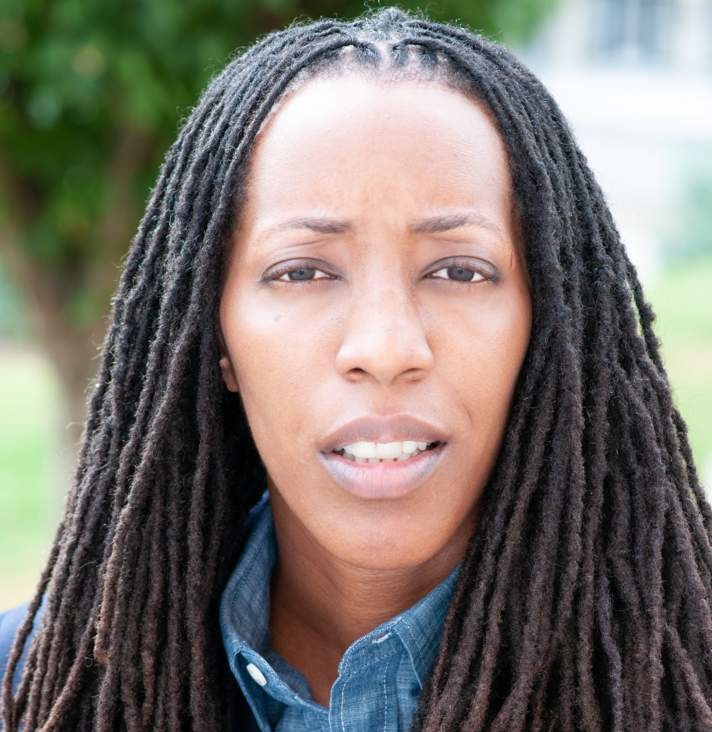Yesterday, to recognize the beginning of Black History Month, Harker’s Black Student Union and Student Diversity Coalition hosted a webinar by Bettina Love, the Athletic Association Endowed Professor at the University of Georgia and author of “We Want to Do More Than Survive: Abolitionist Teaching and the Pursuit of Educational Freedom.” She is also a co-founder of the Abolitionist Teaching Network.
Love noted the importance of designating February as Black History Month “to honor the history and creativity and brilliance and love of Black people,” adding that “This is a very interesting time to be having a conversation about Black history and justice in a pandemic after the summer we’ve had,” referencing the massive wave of protests and unrest that took place following the police killing of George Floyd in May of last year.
One part of Love’s presentation displayed Norman Rockwell’s famous painting of Ruby Bridges on her way to school after the passing of school integration in New Orleans, escorted by U.S. Marshals, with a racial slur scrawled on the wall next to her. “What we don’t talk about is that Ruby Bridges is 66 years old,” Love said, illustrating the point that images of the racial segregation and oppression do not represent ancient history. “This is not a long, long, long time ago. This is one generation removed.”
Love used the example to show that racism is a structure still alive and well in American society, and that Black Americans continue the fight to make Americans realize their humanity. As examples, she pointed out that white medical students believe Black patients have greater resistance to pain, and that students at historically Black colleges and universities (HBCUs) pay more for student loans, a situation she called “educational redlining.” Black COVID-19 patients are also dying at higher rates, which some have attributed to pre-existing conditions. “What if I told you that racism is a preexisting condition, and your country makes you the most vulnerable?” Love countered, citing that Black Americans have had their access to well-paying jobs, education, housing and other aspects of what she called the “social safety net” severely limited.
“When there’s a global pandemic and you need all of those institutions to work … if you are not allowed all of those things, you are not allowed a social safety net,” she said. Love also recapped Dr. Martin Luther King Jr.’s fight to redistribute wealth and political power in his multiethnic Poor People’s Campaign. “What we have done is not only try to free ourselves but try to free everybody else as well,” she said.
Repeated exposure to incidents of vicious racism being visited on Black people can be very traumatic. “We are living in a world where every solution is punishment,” she said. “We are murdering children’s spirits.”
Love also emphasized the importance of realizing that “Black folks’ lives are more than just trauma, more than just oppression,” and to recognize “how we try, how we get knocked down, how we get back up, with swag.”
Black Americans have learned to adapt and innovate largely because “we’ve studied this place so well. [As a Black person], you know you can’t go through the front door and you can’t go through the back door. You have to know every angle.”
To reinforce her point, she quoted poet Nikki Giovanni, who said, “Style has a profound meaning to Black Americans. If we can’t drive, we will invent walks and the world will envy the dexterity of our feet … if given scraps, we will make quilts … take away our drums, and we will clap our hands. We prove the human spirit will prevail.”
In order to create a just society, Love proposed that a radical transformation is necessary and not just a reforming of the current system. Her concept of abolition involves first instilling “an imagination to create a world without oppression. It is a radical framework that asks us to look deeply at our institutions, and not try to reform them, but to build something new,” she said. “We are trying to go to the very root of oppressions. We have to look at the very structures that create prisons, the very idea of jobs and education.”
Love ended her talk by communicating the importance of being a co-conspirator instead of an ally, by calling out forms of oppression and actively working to avoid creating systems of injustice, imploring people to “live your everyday life trying to make this world better.”
